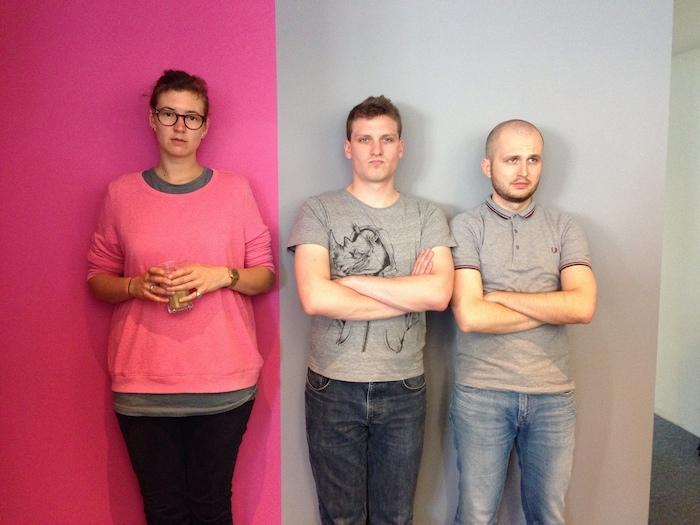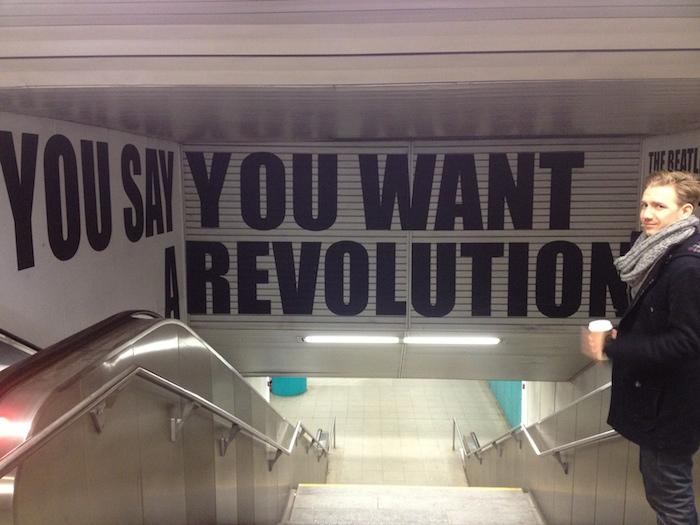
The Quirky Spirit: Psychic Income Revolution
I don’t want a job without psychic income. Chances are if you’re creative, energized by change, and excited by the unexplored, neither do you. If there’s one thing I learned in five years of PhD research of artists and their values, it’s this. Money is nice. Psychic Income is better.
There’s a lot to be done to bring this new currency of work out of the artist’s studio and into the places we work.

Give Me Psychic Income
The Australian economist David Throsby once conducted a study about work preferences of artists, testing an artist’s choice between a day job’s survival income and making art in their own time. One paid the bills. The other granted creative autonomy.
He found out, that if artists got a raise in their day job, they would rather cut the hours worked so that they could have more time for their art. Instead of taking the extra money and spending it on a new pair of shoes, they choose to invest it in the autonomy to make more art.
These rewards for being an artist are something that the French Sociologist Pierre-Michel Menger calls ‘psychic income’. The satisfaction of working as artists is unrelated to monetary income. It’s based on other factors “that include the variety of the work, a high level of personal autonomy in using one's own initiative, the opportunities to use a wide range of abilities and to feel self-actualized at work, an idiosyncratic way of life, a strong sense of community, a low level of routine, and a high degree of social recognition for successful artists”.

Quirky Spirit Revolution
Autonomy for autonomy's sake, that’s just the desire of a few philosophers, intellectuals and quirky spirits … or is it?
Richard Florida, argues that we are moving into a new phase of economic life, shaped by intellectual elites of writers, scientists, educators, designers and technologists, a ‘creative class’, who earn their keep by generating original ideas and conceptual innovation.
In an Australian Newspaper article ‘Unchain the creative class’ Professor Marilyn Lake describes a bubbling rebellion, a “shift in ways of working demanded by the creative class - the importance of autonomy and freedom, respect and trust - in the ‘no-collar workplace’”.
“Creative people work long hours - longer than average - but they require autonomy and freedom to flourish and their output can't be measured in the usual ways because so much of it is in process inside people's heads. New ideas are not produced to order - and do not follow directives or prescriptions from on high. Original ideas have, by definition, yet to be imagined, and they need the right conditions in which to flourish. Creativity needs to be nurtured with trust and respect, not crushed by the weight of bureaucracy, by disrespect or the endless demand for accountability and conformity to rules and regulations”. (Lake, 2002)
Autonomy, essentially means “selfdirecting freedom and especially moral independence”. It’s a key desire of the so-called ‘Generation Y’ and is especially well voiced within the creative industries. Today much of the workforce has an opinion and wants free choice.
Deliver Me Autonomy
When I started working for Thoughtworks, I kept hearing people say they didn’t do the job ‘just for the money’. The same passion that drove the artists toward autonomous work is at play for other people in other jobs. We all want our psychic income.
Individualization has planted its roots deeply in the DNA of the creative workforce. Personal preferences and individual habits are increasingly seen as perfectly acceptable arguments in how one executes their job. As my colleague Dan McClure has described in his article ‘When Afternoon is a Hostile Work Environment’, “tailoring workplace routines and expectations is a significantly underestimated part of the organization change necessary to become an innovative enterprise.”
When people look for their own version of psychic income in a new job, acceptance of diversity conveys the message ‘non-standard people welcome here’.
“Creative-minded people enjoy a mix of influences. They want to hear different kinds of music and try different kinds of food. They want to meet and socialize with people unlike themselves, trade views and spar over issues”. (Florida, 2002)
Sadly, it's not uncommon for a highly creative worker to grow up with a feeling of not-belonging, being different in ways outside the conventional divisions of ethnic background or sexual orientation. Diversity does not to refer only to quotas for women or ethnic representation. It can also reflect differences as simple as introvert / extrovert or morning / evening person.

Autonomy In Hard Places
Autonomy and diversity are among the top factors that generate ‘psychic income’ for the creative class, so its not surprising this is true for most people working at consultancies like Thoughtworks.
The IT sector has always been a trailblazer in innovative ways to work and collaborate - from flexible working hours and work locations to employer benefits, game rooms, and Google’s infamous ‘20% time’ for individual innovation.
However, many of these innovations are hard to sustain in a consultancy. I do Business Analysis, and constant communication is at the foundation of my job. There are obligations toward the team and the client that often imply common schedules, travel and shared work locations.
New strategies have to be developed within consultancies and other highly collaborative work environments. These haven’t been easy. A high functioning team needs to find compromises in order to be able to collaborate - that is in our case, to work together, at the same time, and ideally at the same location. Running off to the nearest coffee house because it sparks your creative mind is therefore not always possible.
To engage the creative class, money is just one factor in the equation; openness to individual ideas and passions become all the more important. A day only has so-many hours. The occasional home office day helps to ‘get shit done’ that otherwise easily falls between the cracks of client meetings and team needs, but it is definitely not a broad solution for delivering autonomy and the psychic income that it brings.
Time For Some Inventing
I’m a happy member of Generation Y. How can we, as a generation with high values and high demands, walk new and innovative paths in our daily work? Merging conventional work practices with a focus on personal preferences of where, when and how to work creates a dilemma for companies who have already filled the hours of demanding jobs.
It's time we started to think about creative solutions. This is what Joseph Beuys meant with his famous (and widely misinterpreted) statement ‘everyone is an artist’; creativity is no longer the special realm of artist working a survival level job on the side. Increasingly everyone must apply creative thinking in his or her own area of specialization. It’s time we used those diverse interests and skills to shape a work environment that adds to our psychic income!
Disclaimer: The statements and opinions expressed in this article are those of the author(s) and do not necessarily reflect the positions of Thoughtworks.














